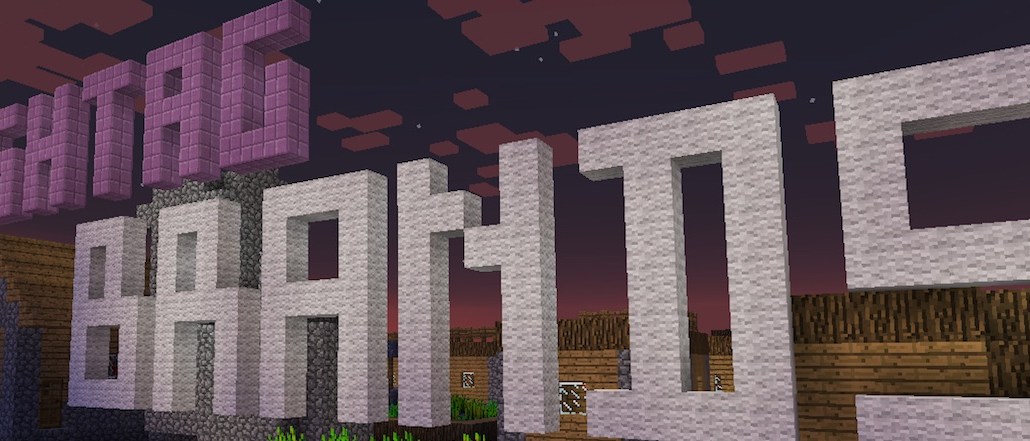Save 50% on a 3-month Digiday+ membership. Ends Dec 5.

Minecraft is known for its alternate reality building blocks. Now it’s bringing its blocking game into the real world: Mojang, the company that publishes the game, has changed its policy to severely curtail the amount of ads that have been creeping into Minecraft.
Marketers love the open source game, which has sold more than 70 million copies. They’ve built branded maps and mods to attract its young and growing player base. In a blog post yesterday called “Let’s Talk About Promotions Built Into Minecraft,” the Microsoft-owned Mojang, announced it is drastically limiting the way agencies, politicians and non-profit organizations can litter the virtual world with promotions.
“We want to empower our community to make money from their creativity, but we’re not happy when the selling of an unrelated product becomes the purpose of a Minecraft mod or server,” the publisher said. Brands previously had free reign and didn’t pay Microsoft to advertise in it.
The move comes in response to users’ frustrations. Companies are no longer allowed to make mods that promotes products unrelated to the game, “e.g., if you are a restaurant chain, you can’t market your restaurant by releasing a mod that includes your restaurant built out of Minecraft blocks,” Mojang said in its post.
Minecraft is also targeting the entertainment industry, barring them from making maps on Minecraft that looks like “the fictional world of the movie or its characters, and you can’t make an official movie trailer out of gameplay footage from that map or mod.” Fans are still allowed to make Minecraft tutorials and sell advertising within their YouTube videos, it noted.
The changes means advertorials like Verizon creating a “semi-working” cell phone or Walt Disney Co.’s-sponsored map for the movie “Tomorrowland” are now prohibited.
On Reddit’s Minecraft subreddit, which has 430,000 followers, reaction to the policy change was mixed.
Ad position: web_incontent_pos1
“This feels like a pointless limitation on freedom,” surmised one person. “So what if McDonalds wants to make a McDonalds restaurant mod? How does that bother you? Just ask them to put a big disclaimer sign or something stating that they’re not affiliated with you and you shouldn’t have anything to worry about.”
Another person explained that the refreshed guidelines closes loopholes allowing companies to misuse the game’s lax advertising: “While Lego can be used by fans to create an infinite number of things on their own, sitting idly by while the above examples happen can cause uncomfortable scenarios, PR nightmares, or worse, can dilute the brand and cause them to lose hold on their trademark.”
More in Marketing

Ulta, Best Buy and Adidas dominate AI holiday shopping mentions
The brands that are seeing the biggest boost from this shift in consumer behavior are some of the biggest retailers.

U.K. retailer Boots leads brand efforts to invest in ad creative’s data layer
For media dollars to make an impact, brands need ad creative that actually hits. More CMOs are investing in pre- and post-flight measurement.
Ad position: web_bfu
